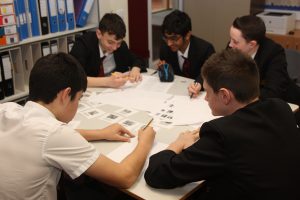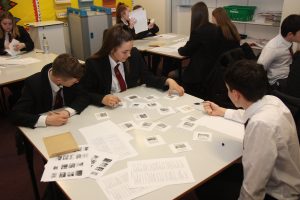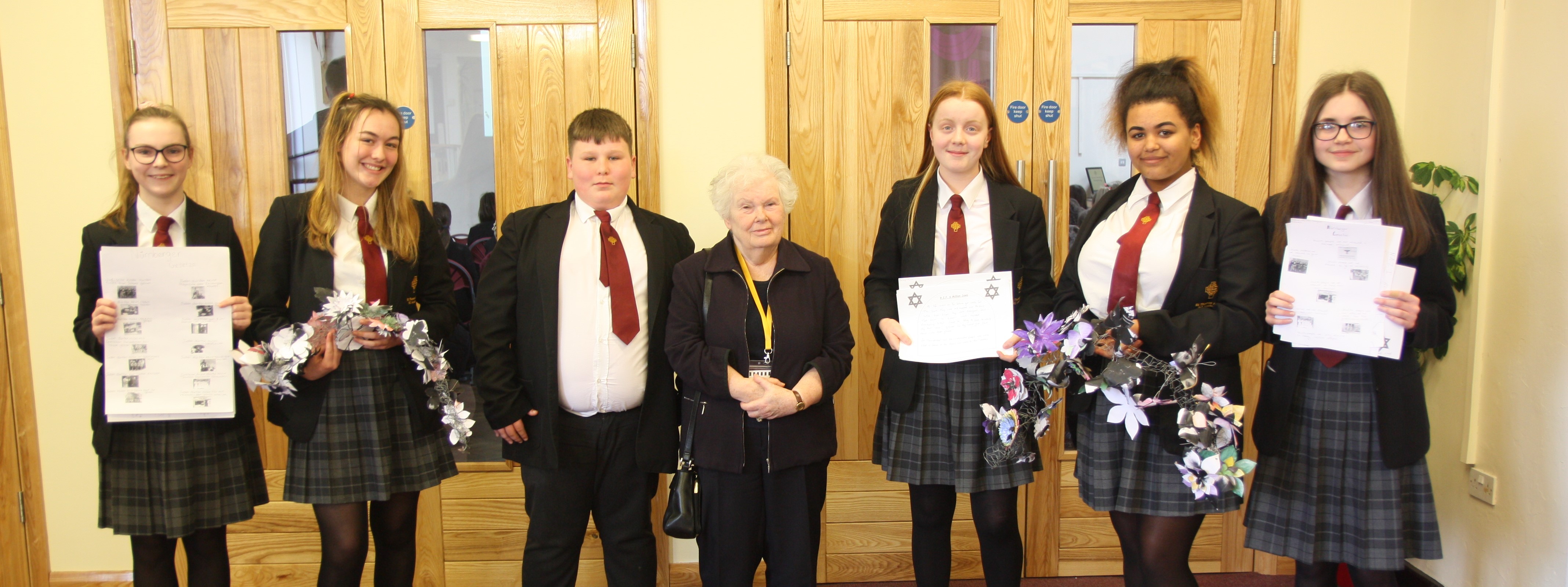By Niamh Goodacre, Year 9
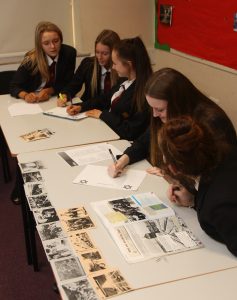 On Tuesday 19th of March all Year 9 pupils participated in a Holocaust Memorial Day. This was to commemorate those who lost their lives and to learn about the events that occurred. The first half of the day was spent doing various workshops that had been set up around school. Examples of the workshops included baking traditional Jewish bread, an English workshop where we learnt about different poems by refugees of that time and a Geography lesson based on famous Jewish celebrities from different countries. I personally took part in a History and an Art themed workshop. In Art, we made poppies out of photos of those who may have fought in the war and their families to honour their life. In the History workshop we learned what life was like for the Nazis and the Jews and how that contrasted to what was shown by Hitler.
On Tuesday 19th of March all Year 9 pupils participated in a Holocaust Memorial Day. This was to commemorate those who lost their lives and to learn about the events that occurred. The first half of the day was spent doing various workshops that had been set up around school. Examples of the workshops included baking traditional Jewish bread, an English workshop where we learnt about different poems by refugees of that time and a Geography lesson based on famous Jewish celebrities from different countries. I personally took part in a History and an Art themed workshop. In Art, we made poppies out of photos of those who may have fought in the war and their families to honour their life. In the History workshop we learned what life was like for the Nazis and the Jews and how that contrasted to what was shown by Hitler.
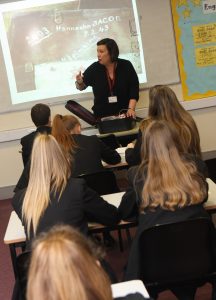 In the afternoon a Holocaust survivor, Joanna Millan (born Bela Rosenthal), came in to talk to us about her experiences during this horrible time. She spoke to us about how in 1943 her father was taken to Auschwitz and killed, and later that year she and her mother were deported to Theresienstadt in Czechoslovakia. Joanna was separated from her mother, who later died, and had to live with five other orphans. Fortunately, her life turned around and after her camp was liberated, she was adopted and changed her name. As she was only three at the time, Joanna was able to piece together information about her past from social media. She told a very interesting story. It fascinated us how brave she was considering how young she was at the time. We were also really interested to hear how over the years she has managed to trace her family links.
In the afternoon a Holocaust survivor, Joanna Millan (born Bela Rosenthal), came in to talk to us about her experiences during this horrible time. She spoke to us about how in 1943 her father was taken to Auschwitz and killed, and later that year she and her mother were deported to Theresienstadt in Czechoslovakia. Joanna was separated from her mother, who later died, and had to live with five other orphans. Fortunately, her life turned around and after her camp was liberated, she was adopted and changed her name. As she was only three at the time, Joanna was able to piece together information about her past from social media. She told a very interesting story. It fascinated us how brave she was considering how young she was at the time. We were also really interested to hear how over the years she has managed to trace her family links.
Holocaust Memorial Day was organised by Mrs Mole from the History department, supported by the Holocaust Educational Trust (HET). The visit is part of the Holocaust Educational Trust’s extensive all year round Outreach Programme, which is available to schools across the UK.
About Joanna Millan BEM
Joanna was born Bela Rosenthal in August 1942 in Berlin, Germany. In June 1943, Bela and her mother were taken from their home and sent to the Theresienstadt ghetto.
In 1944 when Bela was two, her mother contracted TB, leaving Bela orphaned and alone in the camp. Some of the women working in the kitchens would take food to the orphans. On 3rd May 1945, the Red Cross took over control of the camp and Bela was liberated by the Russians.
After liberation Bela, along with five other surviving orphans, was flown to England. After living in a series of children’s homes, Bela was adopted by a Jewish couple living in London. They decided it would be better for Bela to have a less German-sounding name so it was changed to Joanna. Joanna was told not to mention that she was Jewish or that she was born in Germany and to pretend that she was their natural daughter.
Growing up and hiding her identity was hard for Joanna, but she believes that the scale of antisemitism was such that Jews were discriminated against in all sections of society, even in England. Joanna went on to marry a Jewish man and has three children and eight grandchildren. She is a magistrate and today speaks regularly about her experiences during the Holocaust.
